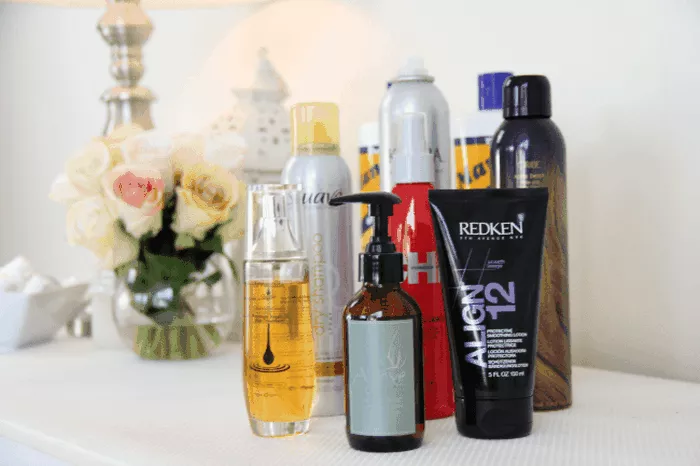Biotin and collagen are two popular supplements that have garnered significant attention in the wellness and beauty industries. Both are touted for their benefits to hair, skin, and nails, but what exactly do they do? This article delves into the science behind biotin and collagen, their individual benefits, how they work together, and the best ways to incorporate them into your daily routine.
Understanding Biotin
What is Biotin?
Biotin, also known as vitamin B7 or vitamin H, is a water-soluble vitamin that plays a crucial role in various metabolic processes. It is part of the B-complex vitamins, which help convert food into energy and support the health of skin, hair, and nails.
Sources of Biotin
Biotin can be found in a variety of foods, including:
Eggs: A rich source, particularly in the yolk.
Nuts and Seeds: Almonds, walnuts, and sunflower seeds are excellent sources.
Legumes: Peas, beans, and lentils provide significant amounts of biotin.
Whole Grains: Oats and barley contain biotin.
Leafy Greens: Spinach and kale also offer biotin.
Biotin Deficiency
While biotin deficiency is rare, it can lead to symptoms such as:
Hair thinning and loss
Skin rashes or dermatitis
Brittle nails
Fatigue and weakness
Understanding Collagen
What is Collagen?
Collagen is the most abundant protein in the body, accounting for about 30% of the total protein content. It provides structure and support to various tissues, including skin, bones, tendons, and cartilage. Collagen is often referred to as the body’s scaffolding, giving it strength and elasticity.
Sources of Collagen
Collagen can be obtained through dietary sources and supplements:
Animal Products: Bone broth, chicken skin, fish, and pork skin are rich in collagen.
Collagen Supplements: Hydrolyzed collagen (collagen peptides) is available in powder or capsule form and is easily absorbed by the body.
Vitamin C-Rich Foods: While not a direct source of collagen, vitamin C is essential for collagen synthesis and can be found in citrus fruits, berries, and bell peppers.
Collagen Degradation
As we age, the body produces less collagen, leading to signs of aging such as:
Wrinkles and sagging skin
Joint pain and stiffness
Weaker bones
The Benefits of Biotin
1. Promotes Healthy Hair
Biotin is often referred to as the “hair vitamin” due to its role in maintaining healthy hair growth. It helps to:
Strengthen hair follicles
Reduce hair loss
Improve hair thickness
2. Supports Skin Health
Biotin plays a role in maintaining the skin’s barrier function, which can lead to:
Enhanced hydration
Reduced dryness and flakiness
Improved overall skin appearance
3. Strengthens Nails
Biotin is known to strengthen brittle nails, leading to:
Reduced breakage
Improved nail growth
Healthier nail appearance
4. Aids Metabolism
As a B-vitamin, biotin is involved in:
The metabolism of carbohydrates, fats, and proteins
Energy production, which can enhance overall vitality
The Benefits of Collagen
1. Enhances Skin Elasticity
Collagen supplementation can lead to improved skin elasticity, resulting in:
Reduced appearance of fine lines and wrinkles
A more youthful complexion
2. Supports Joint Health
Collagen is essential for maintaining the integrity of cartilage, which can help:
Reduce joint pain and stiffness
Support recovery from joint injuries
3. Promotes Gut Health
Collagen may benefit gut health by:
Supporting the gut lining, which can aid digestion
Reducing symptoms of leaky gut syndrome
4. Strengthens Bones
Collagen provides structure to bones, contributing to:
Improved bone density
Reduced risk of fractures and osteoporosis
The Synergistic Effects of Biotin and Collagen
When combined, biotin and collagen can provide enhanced benefits for hair, skin, and nails:
Hair Growth: Biotin strengthens hair follicles, while collagen provides essential amino acids for hair structure.
Skin Hydration and Elasticity: Biotin supports skin health, and collagen enhances skin elasticity, leading to a plump, youthful appearance.
Nail Strength: Both biotin and collagen work together to improve nail strength and resilience.
How to Incorporate Biotin and Collagen into Your Routine
Dietary Sources
Biotin-Rich Foods: Include eggs, nuts, seeds, and leafy greens in your diet.
Collagen-Rich Foods: Consume bone broth, fish, and skin-on poultry.
Supplements
Biotin Supplements: Available in various dosages, consult with a healthcare provider for appropriate intake.
Collagen Supplements: Hydrolyzed collagen powders can be added to smoothies, coffee, or baked goods.
Topical Products
Hair Care: Look for shampoos and conditioners containing biotin for added benefits.
Skincare: Use products with collagen peptides for improved skin hydration and elasticity.
Recommended Dosages
Biotin
The recommended daily allowance (RDA) for biotin varies, but general guidelines suggest:
Adults: 30 micrograms (mcg) per day
Pregnant Women: 35 mcg per day
Breastfeeding Women: 45 mcg per day
Collagen
Collagen supplementation dosages can vary based on individual needs, but common recommendations include:
General Health: 5-10 grams per day
Joint Health: 10-15 grams per day
Skin Health: 2.5-5 grams per day
Potential Side Effects
Biotin
Biotin is generally considered safe, but excessive intake may lead to:
Skin rashes
Digestive upset
Collagen
Collagen supplements are also safe for most individuals, though potential side effects may include:
Gastrointestinal discomfort
Allergic reactions in those sensitive to specific collagen sources
Conclusion
Biotin and collagen are powerful allies in promoting hair, skin, and nail health. By understanding their benefits and how to incorporate them into your daily routine, you can harness their potential to improve your overall well-being. Whether through dietary sources, supplements, or topical applications, both biotin and collagen can contribute to a more radiant and youthful appearance, making them essential components of a comprehensive beauty regimen. Embrace the benefits of biotin and collagen to nourish your body from the inside out.
Related topics:
- What Heat Protectants Do Salons Use? A Comprehensive Guide
- What Is The Best Hair Treatment In Salon? A Detail Guide
- What to Do with Over-Processed Bleached Hair: A Full Guide


